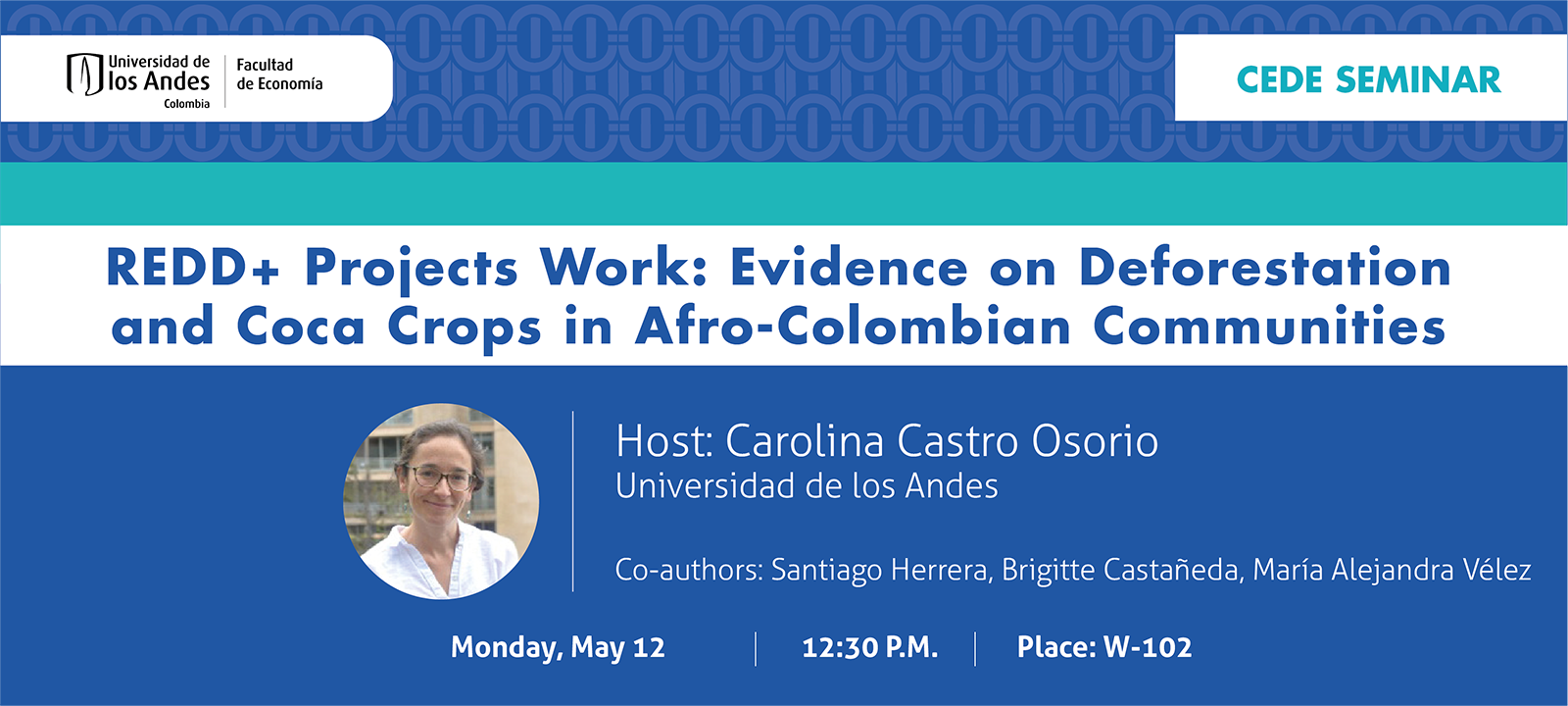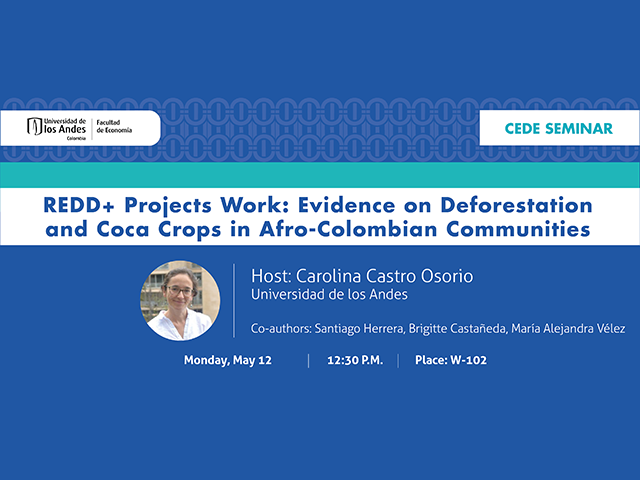CEDE Seminar - Carolina Castro

Global efforts to mitigate climate change include Reducing Emissions from Deforestation and Forest Degradation (REDD+). However, evidence on its effectiveness remains mixed, with many studies finding limited impacts on deforestation and overlooking potential effects on other economies. This study evaluates the effectiveness of collective REDD+ agreements signed by Afro-Colombian communities in curbing both deforestation and coca cultivation. Using satellite data and a difference-in-differences approach, we find that REDD+ projects significantly reduced deforestation by an average of 33 m² per pixel and coca cultivation by 0.33 ha / km2, which is approximately 9,695 hectares of avoided deforestation and 7,098 hectares of contained coca crop expansion annually. These significant impacts, which stand in contrast to findings from previous REDD+ evaluations, likely stem from the way these collective agreements strengthen local monitoring systems, enhance social cohesion, and improve economic conditions.

